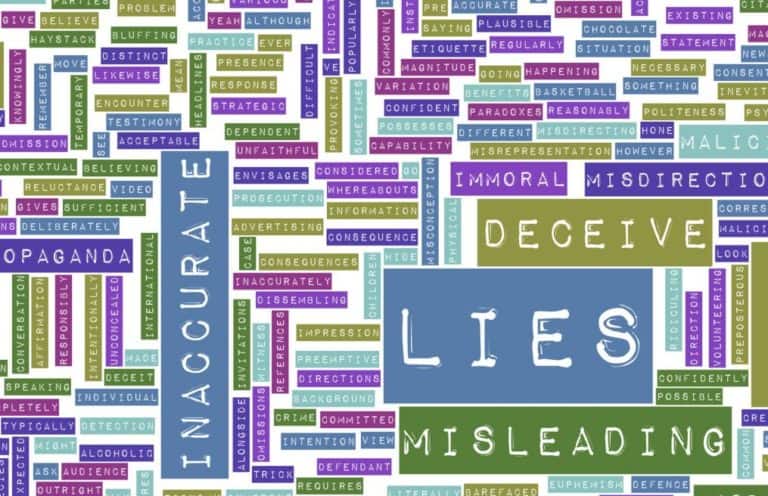House Unveils VA Budget: Key Takeaways for Veterans
As lawmakers unveil the draft budget for the Department of Veterans Affairs for fiscal year 2026, one thing is clear: veterans are watching — and they have questions.
The draft, currently under review by the House Appropriations Committee, boasts increases in spending. But beneath the surface? There are concerns about staffing cuts, delayed care, and whether these numbers actually translate into boots-on-the-ground support for those who served — especially disabled veterans.
Because it’s one thing to write a check. It’s another to show up.
A Boost in Funding — With Strings Attached
Let’s start with what’s being proposed.
The VA is eyeing a $5 billion boost to its overall budget — a 4% increase aimed at enhancing the digital medical records system, addressing homelessness through housing supports, and bolstering benefits processing. That sounds good on paper.
And even better?
The bill includes $222 billion in advance funding for VA medical care — which could help ensure services continue uninterrupted, even amid political gridlock.
But before we start celebrating, here’s where things get murky.
Staffing Cuts Without Clear Answers …
Despite the funding increase, VA leadership has quietly floated the idea of significant staffing reductions.
How significant? We don’t know.
Which departments? No details.
Impact on veteran services? Left up to imagination.
For disabled veterans — who often rely on complex, ongoing care and need consistency in their provider relationships — this isn’t just a budget concern. It’s a quality-of-life concern.
Fewer case managers? Longer wait times.
Fewer claims processors? Slower benefits.
Fewer mental health providers? Less support when it matters most.
As one lawmaker put it bluntly:
“It’s hard to understand how you can promise better care while cutting the people who provide it.” ~ Rep. Debbie Wasserman Schultz, House Appropriations Committee
What Disabled Veterans Should Know
Disabled veterans — particularly those with high-service-connected disabilities — stand to be directly affected if this budget goes sideways.
They’ve already been navigating a system stretched thin:
- Telehealth delays.
- In-person appointment shortages.
- Long processing times for benefits updates and appeals.
This draft budget has the potential to alleviate some of those stressors — or make them worse, depending on how implementation is handled and whether staffing is protected.
And that’s the real crux: implementation matters more than headlines.
Transparency Still Lacking …
Adding to the uncertainty is the fact that this markup is happening before the White House has fully released its 2026 spending request. Translation: We’re budgeting with incomplete data.
Veterans groups are urging caution — and rightfully so. Because it’s not the first time a promising budget ended up shortchanging real people on the ground.
“Veterans have heard it all before. We’re not interested in shiny numbers unless they come with real access, real appointments, and real care.” ~ National Veterans Coalition statement, June 2025
What You Can Do Right Now
If you’re a veteran — or care about one — here’s how to stay informed and have a voice:
- Track the vote: The House Appropriations Committee began marking up this bill on June 5.
- Contact your reps: Let them know you’re watching and you expect full transparency on staffing and service levels.
- Stay connected with advocacy orgs: Groups like DAV, IAVA, and AMVETS are monitoring developments and sharing updates.
- Ask your VA providers: Are there any changes coming to your local center based on budget forecasts?
A budget isn’t just a document.
It’s a declaration of values.
And for disabled veterans, that declaration better say:
“We see you. We value you. And we’re not cutting corners when it comes to your care.”
Because when a veteran reaches out for support — whether it’s for a doctor’s appointment, mental health treatment, or help navigating the benefits maze — the last thing they should hear is, ‘We’re short-staffed.’
Let’s hope this budget doesn’t just write checks — let’s hope it delivers on the promises that matter most.
🔗 Sources:


You could tell the VA that if they don’t give you something that actually relieves pain, that you’ll go get fentanyl right now… they don’t give two shits. They’ll simply bring some consequence to you for even saying that.
US government is crumbling like a cookie while the Incompetence and people doing stupid shit to piss people off goes full throttle. All the competence is in the military right now!!!
Get rid of this fraudulent monstrosity. Hopefully he millions more people visiting VA will open more eyes to the nature of this massive failure and scam redistribution apparatus.
People at VA should be put in handcuffs when they lie. The veteran has to lie to make it in a system that’s fraudulent and rigged.
Veterans Healthcare Administration is just like any business that people have to deal with or the alternative is more expensive, therefore they have all the leverage basically. They don’t have to do anything. Kinda like a Homeowners Association. They don’t even have to call you back. They have a legal claim to extract money from you and that’s the bottom line. The VA, pretty much unlimited demand, and they feel they can be sued and it will result in no consequences for them. That’s their attitude. These conditions will always result in poor outcomes. That’s why an insurance program for veterans is far superior.
Imagine losing ten years of your life to a painful disease that the VA was supposed to, by law, treat, but didn’t for no good reason. That requires remedy or else revenge for the lawless and malfeasant acts. If the courts won’t deliver justice, we have every right to get it ourselves.
Veterans being used as appeal to emotion to create a jobs program, Veterans Healthcare Administration, that doesn’t function as an actual healthcare system. We are tired of it. Open it up to the public so everyone can see the bad policy, inadequacy, incompetence, and insufficiency of this fraudulent system. Give veterans insurance cards.
Half a million people with unlimited legal resources and immunity to deny care and abuse without real oversight or reprocussions. By God every one of them have as much power as any lawmaker or the president himself!
VA Sec Doug Collins from Georgia, the state with some of the worst VAs in the country. He will be a big fixer and rug sweeper for all the malfeasance, incompetence, rights violations, denial of care, poor culture, lawlessness, chicanery, games, fake healthcare system.
If you look on social media, it’s clear that veterans know that the VA isn’t treating pain like almost at all and people are killing themselves. No pain medication (easier to get in Thailand or Singapore where they have harsh drug laws), no surgery, no nothing.. and people are committing suicide. Should be an easy lawsuit if it wasn’t for our dysfunctional, corrupt, derelict, and incompetent government.
The fumbling, crumbling VHA scam is gonna continue to fall apart, rats fleeing the sinking ship, secure for yourselves legal victories, lawsuits, and scrape up a good pile of crumbs before they declare the whole fuck show unconstitutional.
That can fill someone’s notes (which they can later claim isn’t medical record to avoid legal problems if needed) with libelous content, slander, defamation, and bogus claims, and they choose whether or not it gets removed if you complain. Most of the time they don’t… and it gets repeated indefinitely and played off of by every new employee you receive services from. It’s like a criminal record that can’t be expunged. If you leave because of shit like that… they win. There’s no consequences for anything!
Don’t be surprised when you find yourself under water after dealing with a dangerously incompetent ship wreck. Obtain for yourselves insurance!
If the VA employees determine that you’re likely to present some financial or legal problem for them, doesn’t matter if that’s actually the case, they’re gonna go on some offensive that’s likely to land you without actual healthcare so…it will be at least a semi legitimate healthcare system when the courts address that sort of lawlessness and abuse.
Whoever got the great idea to give 400,000 people unlimited legal resources and immunity to do or not do whatever they please in a healthcare system did irreparable harm to veterans in the USA. How well would that work if the VA was opened to the public? Ok then, why subject veterans to such a bad arrangement?
It is said that in order to have social democracy, a large part of the population has to be on board with that. Well, it’s not, and the state of socialized medicine in the USA reflects that. There’s no real dedication to it and the budget is never guaranteed. How do you expect the VA to function under such conditions? These systems work in more left leaning nations. Gee I wonder why they don’t really work here? One things for certain though… it’s not working too well… and it needs a serious makeover that matches the political reality in this country. Need to privatize and issue the insurance cards because this system is untenable. People waiting decade after decade for this system to reach w higher standard and it never does. It must change…it must go.
Should be… cut one job… issue one insurance card until the whole place is wiped out. The notion that certain areas aren’t able to provide healthcare to veterans without VA is bullshit. Direct payments to veterans and providers would stimulate the economy in more robust ways. We don’t need the middle man (VHA) soaking up all the money and providing substandard, or in many cases, no healthcare. Also, the culture is pretty poor at so many facilities. It’s time to ignore all the propaganda and start to wrap it up. It’s a decades long failure.